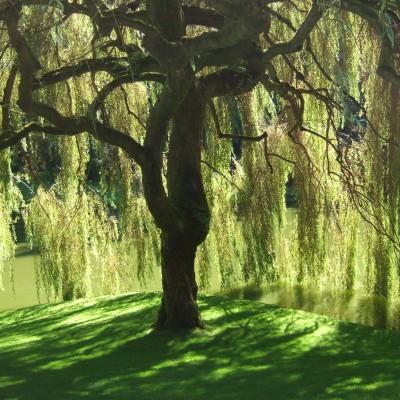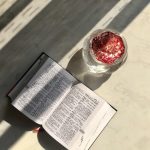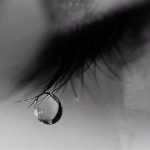A short story by Katya Apekina
Support independent, non-corporate media.
Donate here!

I almost don’t recognize my own daughter. She’s older. A woman. Right after I died, I used to think about her all the time. I’d sit for hours in my assigned room, staring up at the ceiling, trying to imagine all the minutia of her growing up. Her face through the ages, her teeth with braces and without. I would imagine her walking up and down stairs, her making a sandwich. I’d try to picture her voice when she talked and when she sang. And then, at some point, I stopped. It must have happened gradually.
Until today, I had lost track of how long I’ve been here. We’re quarantined until we learn to detach from our earthly selves. My days are the same: the morning meetings, the new arrivals, the aimless walks in between. Hoping each day that my number will get called. Everyone who was here when I first arrived is long since gone, and most of the people who came in after, too. All of them had their numbers called years ago. I’m the only one who’s still here. I’ve stared at the changing faces in the auditorium until they looked familiar, and then stared at them even longer, until they stopped being faces, and became just combinations of noses, foreheads, and mouths.
And now, this morning, as we are being given the speech, a speech that I have learned by heart, about how we should think of this place as a “decompression chamber,” and of ourselves as “divers” on our way back to the surface, I find myself staring at a woman. I’m staring, but not really seeing her, until she runs to me and buries her head in my skirt. She is so tall, all elbows and knees. Of course it breaks my heart to see her. She shouldn’t have followed me here so soon. My poor husband.
“Julia,” I say, burying my face in her hair like when she was little. And for a moment I think that we are both alive, but that moment passes quickly because her hair smells like nothing. Everything here does.
I take her for a walk through The Town. She holds my hand with both of hers. Now it’s me looking up into her face. What a beautiful face. She’s lucky that she looked more like my husband.
She says she got here by diving into an empty pool. I can sense that there is more to this story but she changes the subject. “Why are there so many red barns here?” she asks. It’s true. They’ve even told us why. I repeat what I’ve been taught: it’s supposed to be comforting, a pastoral scene. We walk past the farms and down Main Street. I don’t point out that everything is built like a movie set. Flimsy. No closets or bathrooms. We stop at the overlook point. From there you can see the whole clapboard town.
“I remember the strangest things about you,” she says. “Like how you always made everyone sit with the grain of the couch.”
“You learn to let go of things like that when you’re dead,” I say.
“Dad wouldn’t let anyone sit on that couch after you died,” she says. It makes me sad to think about my husband, alone, circling that couch. What a stupid legacy. I’m grateful when she changes the subject.
“I also remember how you brushed my hair.” She is looking away from the town and towards the mountain. “We could run away,” she says. I don’t say anything. I can’t look at her.
She veers off the path and into the high grass, walking faster and faster, dragging me behind her like a windless kite. When she gets to the base of the mountain she stops. We are both crying.
We walk back in silence for the evening meeting. They make us sing a song, and then they call out the numbers. When mine is called, I pry her fingers off my arm and follow a group of Chinese tourists who died in a bus accident out to the elevator banks.









